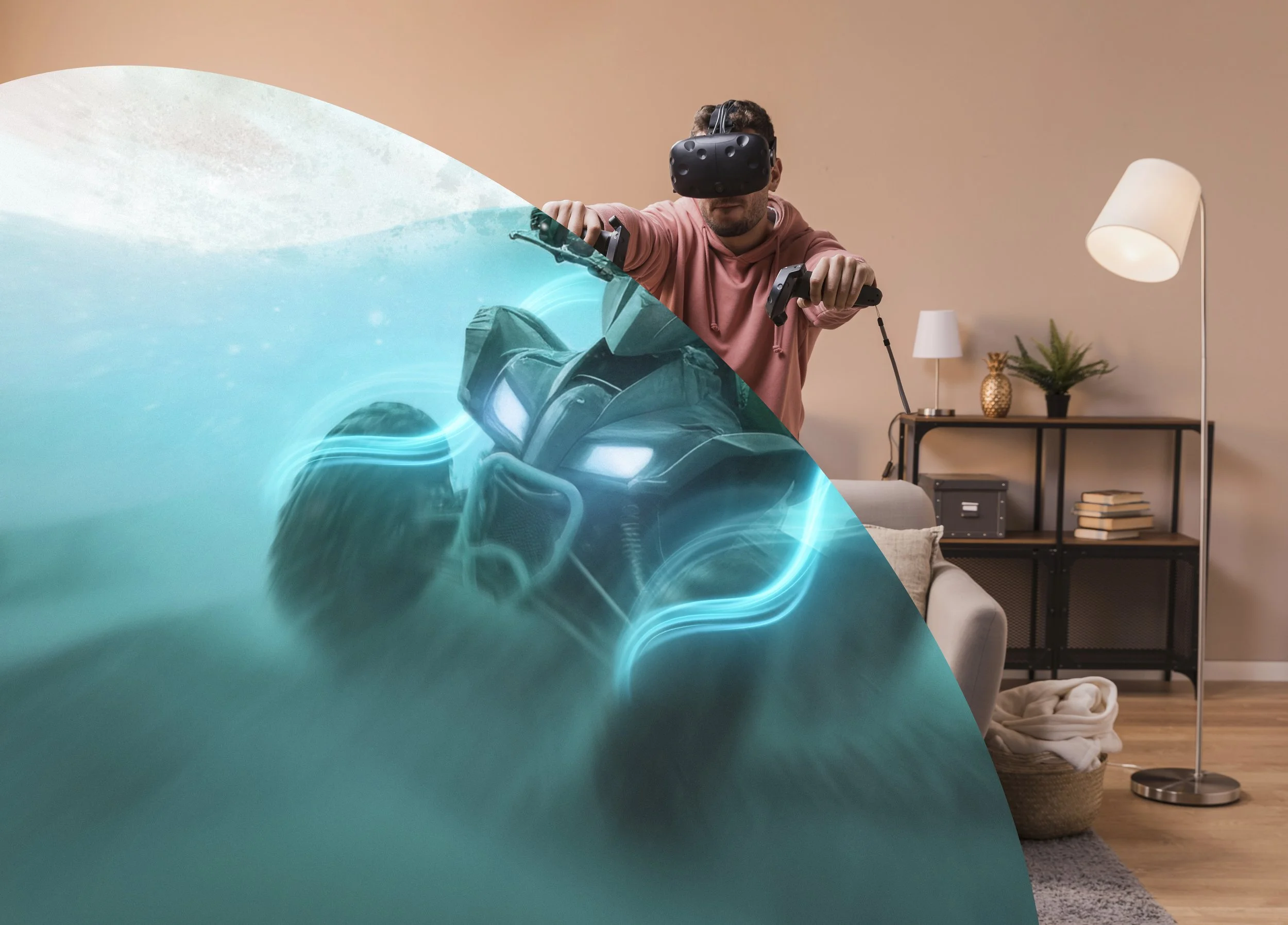How can AI and VR reinvent the travel experience?
/With the rapid movement of technology, it’s no wonder that the travel industry is using it to enhance experiences for their customers. Read on to find out more about how AI and VR can reinvent the travel experience.
In a world where technology is continually evolving at a fast pace, it’s not surprising that industries like the travel industry are being dramatically changed by advancements in technology like artificial intelligence (AI) and virtual reality (VR). These innovative technologies offer unique opportunities that can enhance individuals' experiences’ within the travel industry they may not have been able to access previously. In this article, we discuss how AI and VR are shaping the way we discover the world and how they can work together seamlessly to redefine travel and what that looks like for us today.
AI’s influence on travel
There’s no doubt that AI has had and will continue to have an impact on the travel industry. Here are some of the ways that it can influence travel.
Tailored recommendations
AI technology has the ability to process vast amounts of data enabling it to offer highly personalized travel recommendations. By analyzing user preferences and behaviors, AI algorithms can suggest destinations, accommodations, and activities that align with individual and group interests as well as budgets. Receiving curated itineraries tailored precisely to your tastes takes the pressure off and makes planning a trip a breeze.
Efficient booking processes
Gone are the days of endless research and comparison shopping to find the perfect holiday. With AI-powered travel platforms, users are presented with an array of booking options based on their preferences. Many websites also now employ chatbots with a more natural approach to further enhance the experience of assisting travelers in real time without having to wait on the phone. This includes anything from answering inquiries to making reservations.
Predictive insights
AI technology and its predictive analytics play a crucial role in travel planning. It can forecast factors such as weather conditions, crowd levels and pricing trends. By analyzing historical data and utilizing machine learning algorithms, travelers can make informed decisions about when and where to visit, optimizing their itineraries for the best possible experience.
Immersive experiences enabled by VR
From destination exploration to fun-filled activities, VR can help transport individuals to new worlds and experiences.
Virtual destination exploration
VR technology can transport users to far-flung destinations through immersive 360 degree videos and virtual tours. From iconic landmarks to hidden gems, travelers can explore the world even from the comfort of their own homes. This not only aids in trip planning but also allows individuals with mobility limitations or smaller budgets to embark on virtual adventures. This can include activities such as hiking, scuba diving, hot air ballooning or even playing the at best online casinos and benefiting from their bonuses and promotions, if this is your case, here you can discover the best and how they work within a VR environment.
Previewing accommodations and activities
VR has revolutionized the way travelers can select accommodations and plan activities. VR technology can offer virtual walkthroughs of hotels, vacation rentals and even recreational facilities, such as renting e-scooters, exploring the town or even visiting restaurants. It enables travelers to assess amenities and spatial layouts with an incredible amount of realism. Similarly, VR simulations can provide previews of adventurous activities, allowing individuals to have a sense of suitability before booking.
The full cultural experience
One of the best things about traveling is the opportunity to immerse yourself in different cultures. VR can bring this experience to life by offering cultural encounters and transcending geographical boundaries. Whether that’s attending virtual festivals, participating in cooking classes or interacting with local communities, travelers can gain deeper insights into diverse cultures with VR.
The future of travel with AI and VR
As technology moves forward and AI and VR continue to evolve, the possibilities for the travel industry are limitless. From personalized trip recommendations to immersive virtual explorations, these technologies are reshaping the way we plan, experience and remember our journeys.
Whether it’s embarking on a virtual adventure or learning about new cultures, AI and VR are opening doors to a world of possibilities for travelers everywhere. As we look to the future, it’s clear that AI and VR will play an increasingly integral role in how we discover the best destinations and view the world. With continued innovation, there’s so much potential to make travel more accessible, immersive and enriching for people of all backgrounds and interests.
Conclusion
With these advancements in artificial intelligence and virtual reality, we’re likely to see it most in the gaming sphere, the forefront of advanced technology.














